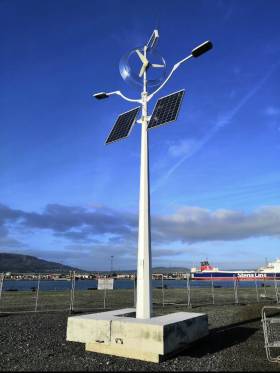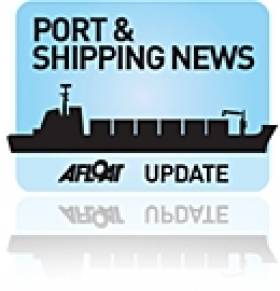Displaying items by tag: emissions
New binding targets for greenhouse gas reductions in shipping are among a range of measures agreed today (Friday 3 June) by EU transport ministers today to reduce emissions in the transport sector in the coming decade.
The new measures, which are to apply to all EU member states, have been negotiated over the last 12 months and agreed under the EU’s “Fit for 55” package: the flagship suite of legislation announced last July to ensure the bloc meets its 2030 climate targets. The EU is aiming for a minimum 55% reduction in GHG emissions compared to 1990 levels.
With this agreement, the stage is set for negotiations with the European Parliament on the final text of these important pieces of legislation.
Welcoming the agreement reached, Ireland’s Minister for Transport Eamon Ryan stressed the importance of the progress made: “This agreement is the result of almost a year of intensive discussions. It is imperative that the EU puts ambitious targets in place if we are to meet our collective goals for the climate.
“Action is urgently needed, not only for road transport but also to realise genuine emission reductions in aviation and shipping. Today’s agreement shows that the EU can be the global leader on climate change.”
Minister Ryan said that while Ireland had pushed for even greater ambition in certain aspects of the maritime and aviation fuel files, the council-agreed texts represent a strong step forward in transitioning towards more sustainable fuels in both sectors.
Lighting Up Brings Benefits in Belfast Harbour
#belfast - Yesterday in the UK was held the National 'Cut Your Energy Cost Day' and where Belfast Harbour contributed in implementing measures.
This has seen the harbour install solar and wind powered lights along their quays. As can be seen above the combined use of such technolgies located on the south bank of the Lagan.
Whilst this saves money, the Harbour adds this is part of a commitment to reducing energy consumption and emissions throughout the port's estate.
UK Shipping Industry Rejects Emissions Trading Scheme
The UK's shipping industry has rejected the European Union's new emissions trading scheme, claiming it is unworkable in a global business.
The Guardian reports that campaigners have called for the inclusion of an emissions trading scheme as part of the EU's carbon reduction programme.
But Mike Brownrigg, director-general of the UK Chamber of Shipping, dismissed the idea as unworkable, claiming that ships would simply refuel at non-EU ports to avoid emissions quotas.
Brownrigg maintained that any solution must be "global - through the International Maritime Organisation - rather than regional".
He added that "we are just at the beginning of this discussion" - despite what The Guardian describes as "years of talks between shipping companies and governments over how to reduce emissions from the sector".
The Guardian has more on the story HERE.

























































